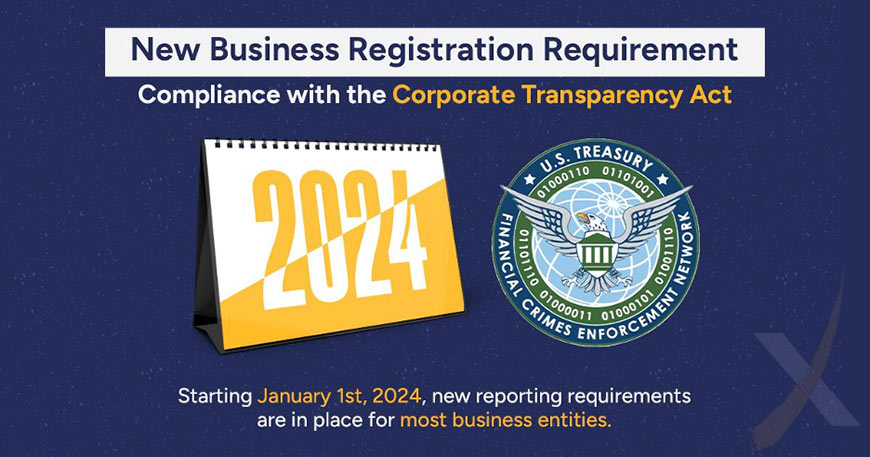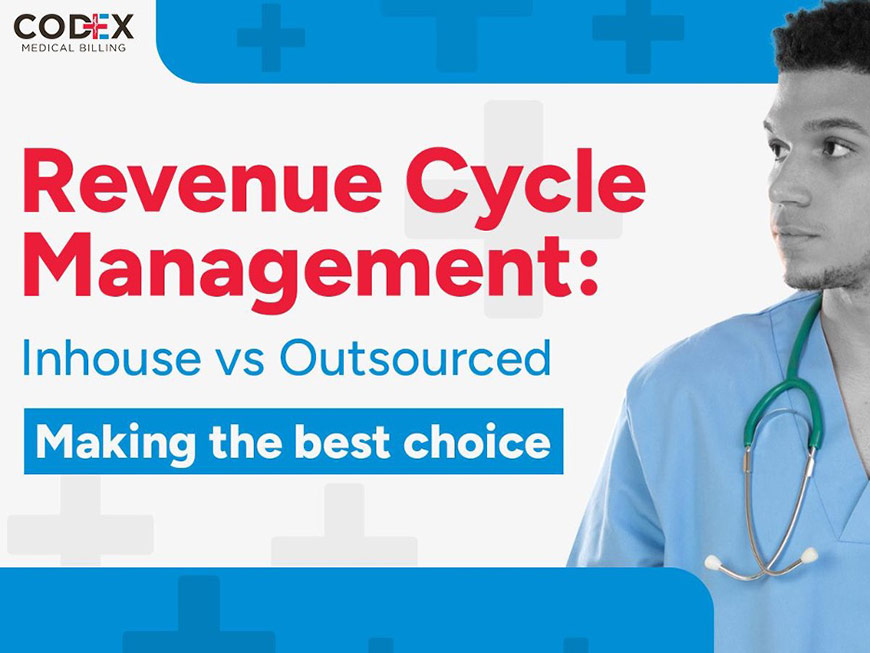Important New Business Registration Requirement Start in 2024 Understanding the New Business Registration Requirement There…

Patient care, complex medical billing systems, and relentlessly evolving payer contracts – can turn managing financial health into a rough, unending journey. But envision a lifeboat in this financial storm – a partner experienced in steering through these unpredictable healthcare administration channels.
This is where partnering with revenue cycle management service providers comes into play. These specialists are not just vendors selling you a service; they become strategic partners that help optimize cash flow, reduce claim denials, and provide invaluable expertise.
Let’s explore the details of revenue cycle management services and determine their best fit for your practice.
Table of Contents:
- The Basics of Revenue Cycle Management
- Identifying the Need for a Revenue Cycle Management Partner
- Selecting a Suitable Revenue Cycle Management Partner
- The Impact of Revenue Cycle Management Partners on Financial Success
- With All Things Considered
- FAQs in Relation to Partnering With Revenue Cycle Management Service Providers
The Basics of Revenue Cycle Management
Maintaining financial health in the healthcare industry is complex. Revenue cycle management is more than just a buzzword; RCM plays a role in ensuring that your medical practice thrives financially.
If you consider RCM an engine, each step – from patient scheduling to final payment – represents different gears working together perfectly. This system manages medical billing processes efficiently saving more time for quality care of patients.
Here are the basic steps in the Revenue Cycle Management process:
- Pre-Registration: The patient’s vital information, medical history, and insurance specifics are collected. Insurance discrepancies are resolved proactively to prevent later claim denials. Ease of access to information improves patient retention.
- Generation of claim: After a visit, a claim is generated detailing the patient, provider, and services delivered, encoded into universally recognized ICD-10 codes for various purposes, including claim reimbursements.
- Claim Submission: Claims are electronically sent directly to insurers or via a third-party clearinghouse that reformats the claim based on the insurer’s preference and batch transmits the claims for processing by the payers.
- Claim Processing – Post-processing, providers are notified whether the claim will be fully paid, partially reimbursed, or wholly denied. The effectiveness in managing claim denials proves crucial in choosing an RCM partner.
- Completion of Payments and Detailed Records: Comprehensive records showing any remaining costs, after the application of insurance coverage, are delivered to patients.
RCM aims at optimizing organizational efficiency, improving patient satisfaction, and maximizing service reimbursements. This process minimizes claim denials, often caused by errors in registration, coding, or incorrect patient information.
RCM utilizes both technology and expert personnel, connecting clinical and administrative data for billing.
Concisely, Revenue Cycle Management is an essential safeguard in healthcare. It protects against financial challenges like claim denials or underpayments by insurance companies, contributing robustly to the financial stability of your institution.
Identifying the Need for a Revenue Cycle Management Partner
An RCM partner can help manage complex claims and deal with intricate health insurance regulations. By partnering with a trusted RCM company, such as Codex Medical, healthcare providers can concentrate on delivering quality care to their patients.
The truth is, that healthcare organizations, large or small, face numerous challenges when it comes to revenue cycle management (RCM). Juggling patient care while keeping track of accounts receivable can feel like spinning plates.

This is where the necessity of partnering with a dedicated Revenue Cycle Management (RCM) provider comes into the picture:
- Manual Errors: Without a dedicated RCM partner, medical facilities risk encountering errors in billing, coding, and claim submission, leading to denials or delays in reimbursement.
- Complex Regulations: Keeping pace with evolving healthcare regulatory requirements can be taxing for healthcare providers. An RCM partner stays up-to-date and ensures continuous compliance.
- Revenue Leakage: Untracked, missed, or wrongly billed services result in revenue loss. An RCM provider underscores such gaps, ensuring accurate and complete billing.
- Reduced Focus on Patient Care: Spending excessive time on administrative details or financial issues can detract from the primary focus – delivering quality patient care. RCM partners alleviate this by taking over revenue management responsibilities.
- Delayed Reimbursements: Managing claims and dealing with denials or delays can be burdensome. RCM partners expedite claim processing, reducing reimbursement turnaround time.
- Lack of Analysis & Insights: Without an RCM partner, healthcare providers may miss out on valuable financial insights derived from data analysis – an important aspect in improving financial health and patient services.
Selecting a Suitable Revenue Cycle Management Partner
Choosing the right revenue cycle management partner is no small task, it can seem daunting, but it’s not impossible.
The choice has a sweeping impact, influencing patient satisfaction, overall revenue, and compliance with regulatory standards. It’s about finding a partner who operates with proven expertise, utilizes state-of-the-art technology for precise billing, and upholds stringent data security norms.
You also want to ensure that your potential RCM partner offers the services that fit best with your organization’s needs – be it denial management or managing payer contracts efficiently.
Consider a partner that has earned a solid reputation among healthcare providers. Reflect on the words of their satisfied clients, and observe their commitment to furnishing tailored solutions.
So, when you’re navigating your way through the myriad of choices, remember that the right partner awaits, one that understands your needs and can help you thrive.
It’s about careful deliberation, but when you find that partner, like many healthcare providers have found in Codex Medical, the rewards are significant and lasting.
The Impact of Revenue Cycle Management Partners on Financial Success
Success in healthcare isn’t just about providing top-notch patient care. It’s also about managing your revenue cycle effectively.
With a successful RCM partnership, providers can realize several key benefits:
- Enhanced Revenue: With robust operational and billing processes, RCM partners ensure full reimbursement for all services rendered, maximizing revenue.
- Reduced Denials: Expert handling of claim submissions and appeals can significantly reduce claim denials and rejections, leading to increased and more timely income.
- Regulatory Compliance: RCM partners stay abreast of frequently changing healthcare regulations and policies, reducing the risk of compliance-related penalties or fines.
- Operational Efficiency: By offloading complex administrative tasks, healthcare providers can allocate more resources to patient care, driving operational efficiency.
- Financial Insights: RCM partners provide valuable financial insights that can aid in strategic decision-making, offering a competitive edge in the healthcare market.
These points underscore the strategic role an RCM partner can have in securing the financial success of a healthcare provider.
Exploring Health Insurance Regulations
Health insurance regulations are continually evolving at both state and federal levels, and outline the rights and protections of both insurers and insured individuals.
The healthcare industry makes a concerted effort to adapt to these changes, as non-compliance can risk penalties, disrupt services, and compromise patient trust. As healthcare providers are held accountable for ensuring accurate and legal billing practices, understanding the complexities of insurance regulations is essential.
One of the most impactful federal laws affecting health insurance is the Health Insurance Portability and Accountability Act (HIPAA). Its enforcement impacts coding, billing, and patient privacy regulations, underscoring the necessity of regular updates and continuous training for healthcare personnel.
Similarly, on a state level, insurance regulations often list guidelines for claim handling and stipulate the time within which insurers must acknowledge, pay, or deny a claim. Being aware of these specifications shields healthcare providers from avoidable claim rejections or delays in payment.
The ongoing monitoring of health insurance regulations is vital for sustainable and compliant healthcare practices. With the right RCM partner, healthcare providers can ensure they are always in step with the nuanced dance of health insurance laws and requirements. More than a compliance measure, it’s a commitment to ethical and effective healthcare provision.
With All Things Considered
Revenue Cycle Management is critical in connecting patient care with financial health. From the first step of patient registration to the final stage of claim resolution, an efficient RCM process minimizes friction, maximizes revenue, and ensures regulatory compliance.
Recognizing when your healthcare organization needs a dedicated RCM partner can be a pivotal turning point. Providers grappling with complex regulations, frequent errors, or revenue leakages can greatly benefit from an RCM partner’s expertise, dedicated focus, and strategic insights.
Choosing the right partner calls for a careful assessment of their expertise, adaptation of cutting-edge technology, commitment to data security, and offering solutions. A well-selected partner can clear the path to sustainable growth, operational excellence, and an elevated patient experience.
FAQs in Relation to Partnering With Revenue Cycle Management Service Providers
What is a revenue cycle partner?
A revenue cycle partner helps healthcare providers manage their financial processes, from patient registration to final payment of services.
Who are the stakeholders in the revenue cycle management?
The stakeholders include patients, healthcare providers, insurance companies, and regulatory bodies. They all play key roles in RCM.
What are revenue cycle management services?
RCM services handle billing and collections for healthcare facilities. They aim to streamline cash flow and reduce claim denials.
Why is the revenue cycle important to providers?
An effective Revenue Cycle boosts financial health by ensuring steady cash flow while improving patient satisfaction through transparent billing practices.



